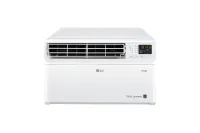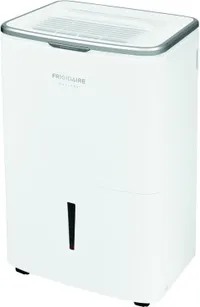I asked appliance experts whether AC or dehumidifiers are better for reducing humidity — here’s what they recommend
Which appliance is best for humidity?
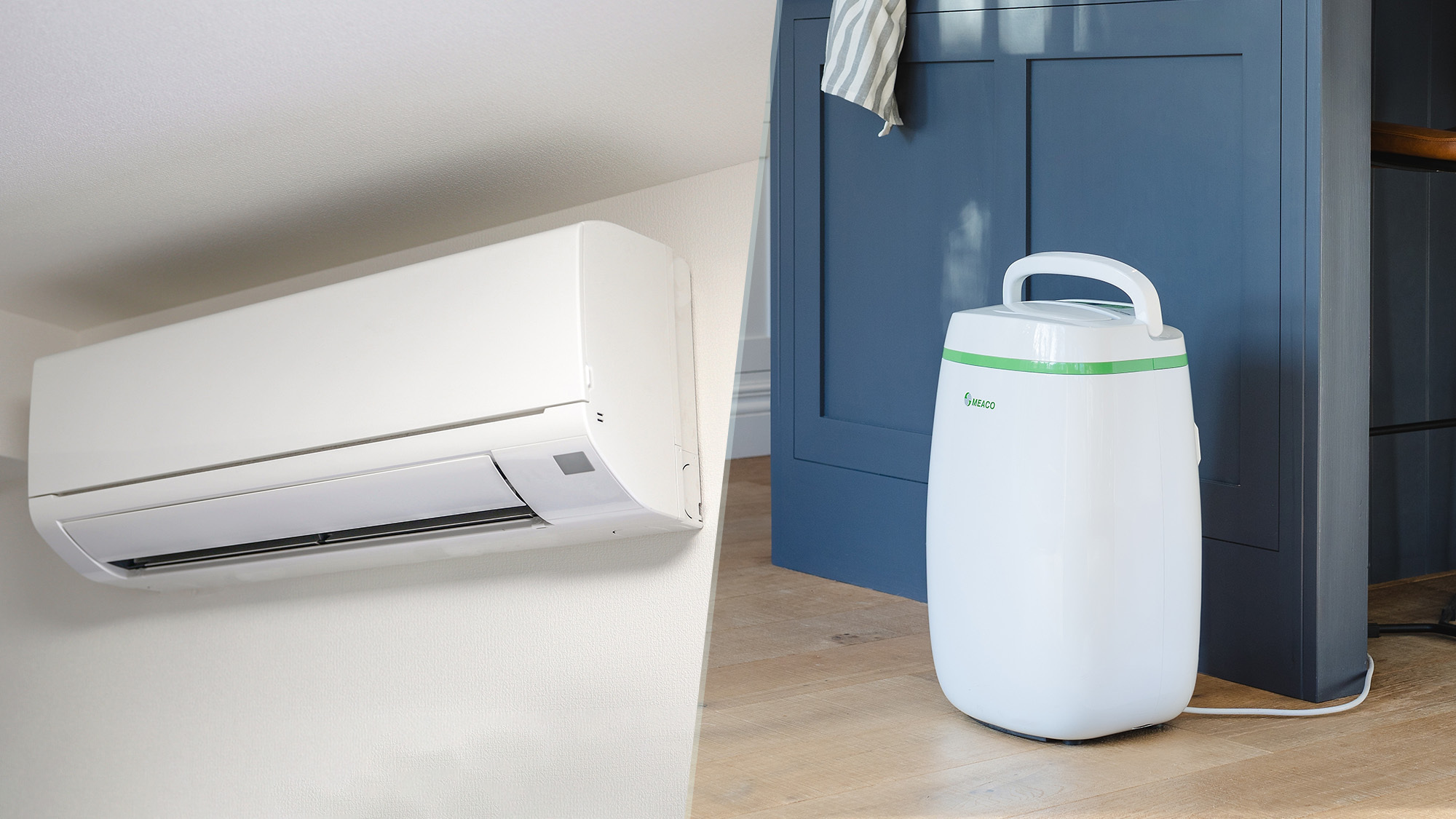
Whether you’re dealing with a heatwave or simply want to maintain a cool and comfortable temperature in the home, having one of the best air conditioners is usually the go-to appliance for reducing warmth.
But if you have humidity issues, you might be wondering whether having one of the best dehumidifiers would be more suitable for reducing moisture levels.
Essentially, both devices operate similarly — they use a refrigeration cycle to cool air below their dew point, causing water vapor to condense and be collected or drained away. However, there are key differences between the two appliances that will determine which one is more effective for the task.
To answer our questions, we ask the appliance experts whether an AC or dehumidifier is better for reducing humidity. Here’s what they say.
How does an air conditioner work?
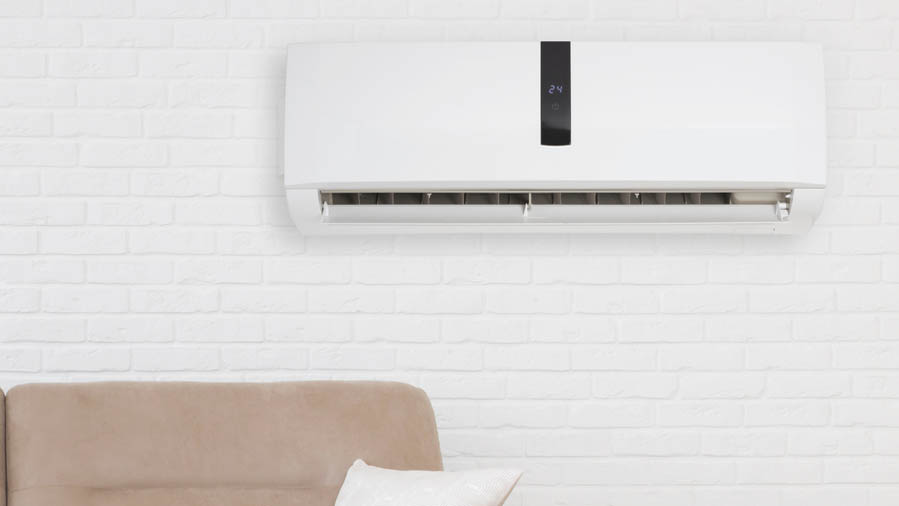
A traditional air conditioner has a closed loop of piping filled with a refrigerant that can undergo phase changes from a liquid to a gas and back again. The air conditioner works by pulling warm air from a room, passing it over cold evaporator coils filled with refrigerant, which absorbs the heat. This cooled gas runs through a series of metal pipes; the air conditioner then blows the cooled air over those pipes and into your home.
“During the process, it removes some humidity from the air through its condenser lines,” states Tim Alagushov, HVAC specialist, and COO of IRBIS Air, Plumbing & Electrical. “For people in regions with limited humidity (like much of California), an AC with a built-in humidity control system is usually more practical than running a separate dehumidifier or installing a whole-home dehumidifier.”
Previously, air conditioners used compressor technology to condense the gas, but in more recent years, companies have started using inverter technology, which is not only quieter, but far more efficient.
Get instant access to breaking news, the hottest reviews, great deals and helpful tips.
This LG air conditioner is one of our top picks in our air conditioner buying guide and scores a 4-star rating. It's a great design, offers a powerful yet efficient performance, and is available in the widest range of sizes.
How does a dehumidifier work?
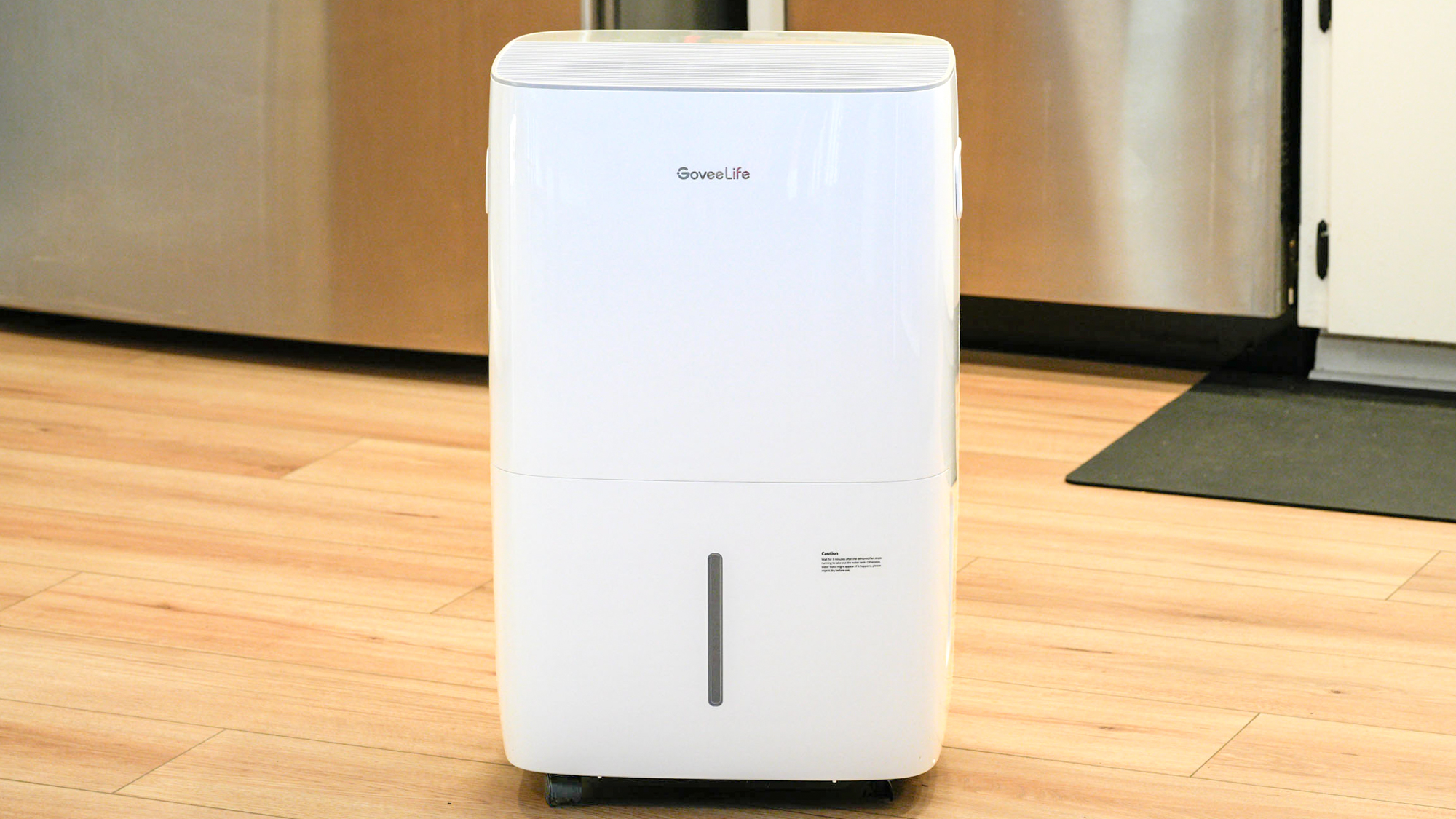
Typically, a dehumidifier works by circulating the air while pulling out moisture to dry out a room. There are two types: A compressor dehumidifier that draws moisture over a coil cooled to a very low temperature by a refrigeration system; a desiccant dehumidifier that draws moisture in over a filter and passes over an absorbent material called Zeolite. Once saturated, an internal heater or fan will blow warm dry air across the Zeolite, condensing the moisture into water which is collected into a tank.
Compressor dehumidifiers are a more popular choice in households, mainly due to its fast water extraction and being more energy efficient.
“A dehumidifier’s sole job is to pull moisture from the air, while an air conditioner’s job is to cool the room, and any moisture reduction is essentially a by-product (unless it has a dedicated “dry” mode),” states Stephen Day, Operations Manager at iHeat.
“If you only want to reduce humidity, a dehumidifier will almost always be more energy-efficient, while using an AC just for dehumidifying, especially without dry mode, is usually overkill.”
What’s more, if you want to quickly reduce dampness, condensation or wish to prevent mold in your home, dehumidifiers are designed to bring down moisture levels in the air.
This is one of the best dehumidifiers we've tested, the Frigidaire FGAC5044W1 has an excellent 50-pint capacity and advanced smart connectivity for automation and voice control via Alexa or Google. You can operate it remotely via the app, set the target humidity and receive notifications when the bucket is full.
Which one is best for reducing humidity?
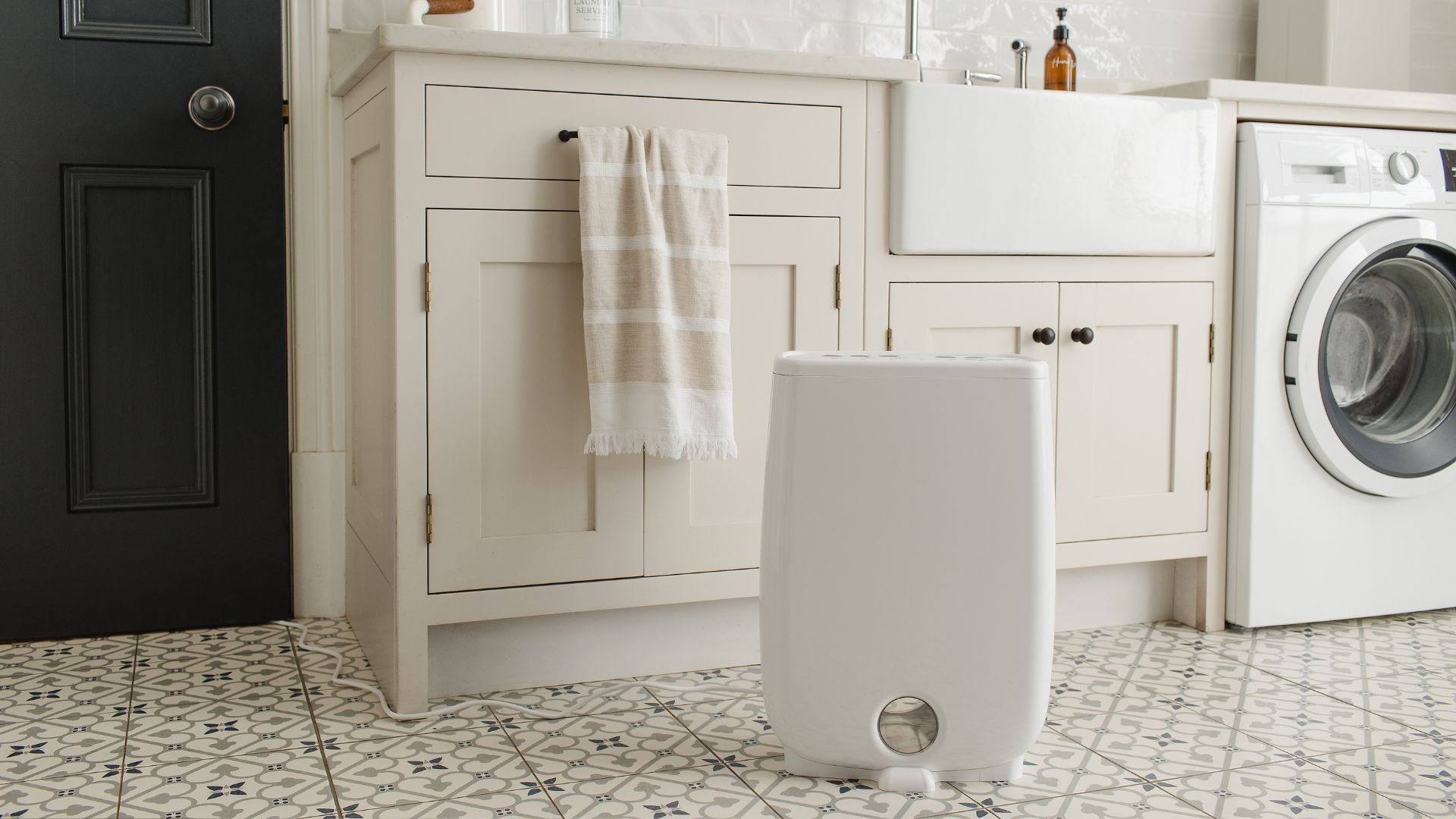
According to experts, dehumidifiers win hands-down for effectively reducing humidity, compared to AC.
“If I had to choose just one appliance, it would be a standalone dehumidifier for targeted humidity control,” states Dan Simpson, owner of Air Treatment Heating and Cooling.
“Standalone dehumidifiers are designed specifically for moisture removal and can operate independently of temperature control. A quality dehumidifier can remove 30-70 pints of moisture per day while using minimal energy. Unlike air conditioners, they don't need to cool the air to remove humidity, making them effective even in moderate temperatures when you wouldn't run your AC.”
And while both have similarities, a dehumidifier is far superior in tackling excess moisture levels in the air. “Air conditioners do pull out moisture from the air, but they do it as a side effect of cooling, and it’s usually less than two gallons per day,” adds Keith Wortsmith, President of DASH Heating & Cooling.
“While dehumidifiers can pull out anywhere from three to nine gallons per day depending on the size. A dehumidifier will remove moisture regardless of the temperatures indoors — air conditioners run only in hot weather and are completely unusable in winters.”
In addition, experts state that there is no harm in running both an AC and a dehumidifier when dealing with high humidity levels. “If your problem is moisture, then a dehumidifier is the better tool for the job,” agrees Ben Hubbert, Co-Owner of Wright Home Services. “But the best setup is a combination of both. A properly sized and maintained AC system should handle everyday humidity just fine. If you’re still dealing with high humidity, adding a dehumidifier can help get things under control, especially in areas like basements or during extra muggy seasons.”
Deal with the source of humidity
Of course, prevention is always the key. If you have humidity issues, it’s best to find the root cause of the problem, and always ensure proper maintenance year-round.
“No appliance can overcome major moisture sources, so you must fix any leaks and ensure proper ventilation in your bathrooms, kitchen, attic, and crawl spaces,” advises Simpson. “Finally, be prepared to make seasonal adjustments to your humidity control strategy. Depending on where you live, you may need more aggressive dehumidification in the summer, and humidification in the winter when heating systems tend to dry out the air.
Ultimately, for comprehensive humidity control, it’s best to invest in a properly sized AC and dedicated dehumidification system. This combined approach will protect your home's structural integrity as well as your family's health and comfort."
For more top tips check out 7 things you should know before buying a dehumidifier, and avoid these common dehumidifier mistakes you could be making.
Follow Tom's Guide on Google News and add us as a preferred source to get our up-to-date news, analysis, and reviews in your feeds. Make sure to click the Follow button!
More from Tom's Guide
- 5 reasons your home needs a dehumidifier this summer
- 9 clever ways to reduce humidity in your home
- Is your AC struggling? Expert shares the simple steps

As the Homes Content Editor, Cynthia Lawrence covers all things homes, interior decorating, and garden-related. She has a wealth of editorial experience testing the latest, ‘must-have’ home appliances, writing buying guides and the handy ‘how to’ features.
Her work has been published in various titles including, T3, Top Ten Reviews, Ideal Home, Real Homes, Livingetc. and House Beautiful, amongst many.
With a rather unhealthy obsession for all things homes and interiors, she also has an interior design blog for style inspiration and savvy storage solutions (get rid of that clutter!). When she’s not testing cool products, she’ll be searching online for more decor ideas to spruce up her family home or looking for a great bargain!
You must confirm your public display name before commenting
Please logout and then login again, you will then be prompted to enter your display name.
 Club Benefits
Club Benefits





